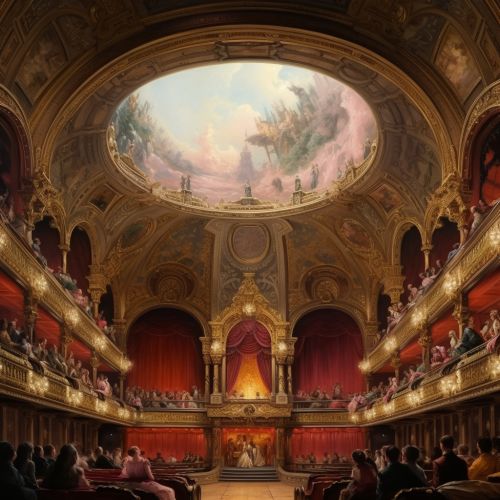Renaissance Theatre
Origins
The Renaissance Theatre, also known as Early Modern English Theatre, refers to the theatre of England between 1562 and 1642. This is the period when William Shakespeare and his contemporaries such as Christopher Marlowe and Ben Jonson were active Shakespeare, Marlowe, Jonson.
Characteristics
The theatre of this era was characterized by a high degree of innovation and creativity. The plays were often complex and sophisticated, exploring themes of love, power, and morality. The language used was rich and varied, with a strong emphasis on poetry and rhetoric. The theatre was also a place of social and political commentary, with plays often reflecting the issues and concerns of the time.


Playwrights
The Renaissance theatre saw the rise of many great playwrights, the most famous of whom is undoubtedly William Shakespeare. His plays, such as "Romeo and Juliet", "Hamlet", and "Macbeth", are still performed and studied today. Other notable playwrights of the time include Christopher Marlowe, known for his play "Doctor Faustus", and Ben Jonson, who wrote "Volpone" and "The Alchemist".
Acting Companies
During the Renaissance, acting was a profession. Actors were usually attached to acting companies, which were groups of professional actors who worked together on a regular basis. These companies were usually patronized by a nobleman, and they would perform in various venues, including the courts of nobles, public theatres, and sometimes even in the streets.
Theatres
The Renaissance theatre was a bustling place, with a diverse range of performances taking place. The most famous theatre of the time was The Globe, where many of Shakespeare's plays were performed. Other notable theatres include The Rose, The Swan, and The Fortune.
Influence
The influence of the Renaissance theatre can be seen in many aspects of modern theatre. The complex and nuanced characters, the exploration of universal themes, the use of poetry and rhetoric, and the social and political commentary are all elements that continue to be important in theatre today.
